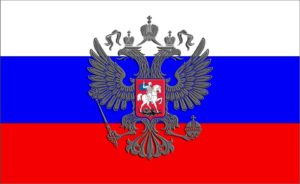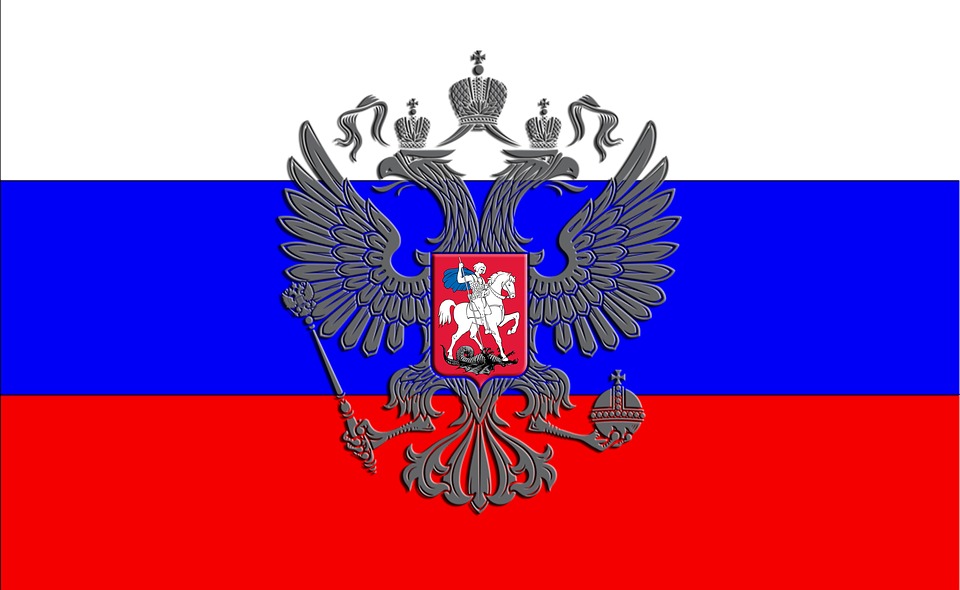8 March 2018
Putin’s Russia
State of the Nation
By Neil Tidmarsh
 Last Thursday, President Putin gave his annual ‘state of the nation’ address to the country’s MPs and other members of Russia’s political elite. It began as usual, promising to be the normal dreary two hours of dull and predictable assessments of the country’s economy and infrastructure and the living standard of its people (all fine) and pledges about it future (going to get even better). But after just one hour of long faces and stifled yawns, everything changed. The president treated his audience to a movie. And what a movie it was! Great box office – plenty of loud bangs and huge explosions while the hero showed off his big weapons. President Putin came alive as he introduced his new arsenal of sci-fi doomsday machines: a novel kind of intercontinental ballistic missile; a nuclear-armed underwater drone; and a nuclear-powered, nuclear-tipped cruise missile invisible to radar systems. He described them as speeding through the air “like a meteor, like a ball of fire!”, and exclaimed triumphantly “Nobody wanted to talk with us, nobody listened to us. Listen now!” Afterwards, a former Kremlin adviser wrote on Facebook “The old chap only brightened up when talking about how he can destroy the whole world!”
Last Thursday, President Putin gave his annual ‘state of the nation’ address to the country’s MPs and other members of Russia’s political elite. It began as usual, promising to be the normal dreary two hours of dull and predictable assessments of the country’s economy and infrastructure and the living standard of its people (all fine) and pledges about it future (going to get even better). But after just one hour of long faces and stifled yawns, everything changed. The president treated his audience to a movie. And what a movie it was! Great box office – plenty of loud bangs and huge explosions while the hero showed off his big weapons. President Putin came alive as he introduced his new arsenal of sci-fi doomsday machines: a novel kind of intercontinental ballistic missile; a nuclear-armed underwater drone; and a nuclear-powered, nuclear-tipped cruise missile invisible to radar systems. He described them as speeding through the air “like a meteor, like a ball of fire!”, and exclaimed triumphantly “Nobody wanted to talk with us, nobody listened to us. Listen now!” Afterwards, a former Kremlin adviser wrote on Facebook “The old chap only brightened up when talking about how he can destroy the whole world!”
Experts here in the West are debating whether Russia really has developed such weapons, or whether it’s merely on its way to develop such weapons, or even whether it’s possible for anyone to develop such weapons. In the meantime, there were plenty of headlines about Russia and Russians in the news this week which told their own story about the state of President Putin’s nation.
With presidential elections only weeks away (elections which Putin is guaranteed to win – most commentators agree that all opponents except stooges, oddballs and hopeless extremists have been prevented from standing), a live televised debate took place between those stooges, oddballs and extremists to showcase the quality of political debate nurtured in the country. Cue walk-outs, shouting matches, insults (“Bitch!” “Whore!”) and glasses of water thrown in faces. Even one of the participants exclaimed “What’s going on here isn’t a debate, it’s a bazaar!”
In Spain, a Russian MP and his wife went on trial accused of helping to launder €50 million for a Russian organised crime gang through property deals on the Costa del Sol and the Balearics. Vladislav Reznic is a member of United Russia, the governing party which supports Putin, and has chaired the parliament’s financial markets committee. Spanish prosecutors allege that he has links with one of Russia’s most dangerous criminal organisations. He denies the allegations.
In Argentina, an investigation has smashed a drug smuggling ring which appears to have been based in the Russian embassy in Buenos Aires. Police and customs officials – tipped off by the ambassador – found 389kg of cocaine (worth £35 million) packed into 16 children’s suitcases in a school building inside the embassy compound. They replaced the drugs with flour and tracked the luggage, which was flown to Moscow a few months later on an aircraft which a Russian flight-monitoring website identified as a plane used by ‘top government officials’. The Kremlin denied the identification. The website was shut down.
In Thailand, a Russian model and escort who says she is “the only witness and missing link in the connection between Russia and the US elections” was detained by police as Nikolai Patruschev, the head of Russia’s security council, arrived in Bangkok for talks. In the summer of 2016, Anastasia Vashukevich was a guest on oligarch Oleg Deripaska’s yacht. She took pictures of the trip and posted them on Instagram. They included shots and videos of meetings between the oligarch and Sergei Prikhodko, a deputy prime minister; opposition politician Alexei Navalny, spotting them recently, claims that they indicate a corrupt exchange and a link between Mr Trump and Russia. A Kremlin spokesperson denied that there was any connection between Ms Vashukevich’s arrest and Mr Patruschev’s visit.
In Germany, an emergency meeting of the parliamentary intelligence committee concluded with the admission that a Russian-backed hacking group had infiltrated the government computer system used by the foreign and interior ministries. German media had already accused the Russian group APT28 aka Fancy Bear (widely believed to be linked to Russian military intelligence) of the cyberattack. German politicians condemned it as “a form of warfare”, and the Bild newspaper described it as comparable to “an attack on (Germany’s) borders”.
In the UK, a Russian ex-double agent and his daughter are fighting for their lives in hospital after collapsing in a shopping centre in Salisbury. Medical experts have confirmed that they’ve both been poisoned with a nerve agent, and police and security officers are considering the possibility they’re the victims of a state-sponsored assassination attempt originating in Moscow. Sergei Skripal had been a colonel in Russian military intelligence before he was found guilty of treason and jailed for handing secrets to M16, but eight years ago he was released as part of a spy-swap and found exile in England. At the time of Skripal’s release, a ‘high-ranking Kremlin source’ is alleged to have said on television that traitors would be assassinated. Skripal’s wife died of cancer six years ago and his son died in Saint Petersburg last year; the Metropolitan Police has announced that both those deaths will be part of their investigation into the attack on Skripal and his daughter. Ten members of the emergency services and members of the public were also taken ill during the incident in Salisbury; one police officer remains seriously ill. The Kremlin has dismissed as groundless any suggestion of official Russian involvement.
In his address last Thursday, President Putin said that Russia should “expand freedom in all spheres, strengthen democratic institutions” and “open the country to the world and new ideas and new initiatives” to “move forwards and develop dynamically”. But it appears that everyone – including Putin – preferred the movie. Perhaps even those fantastic, futuristic, sci-fi weapons seemed more credible.


